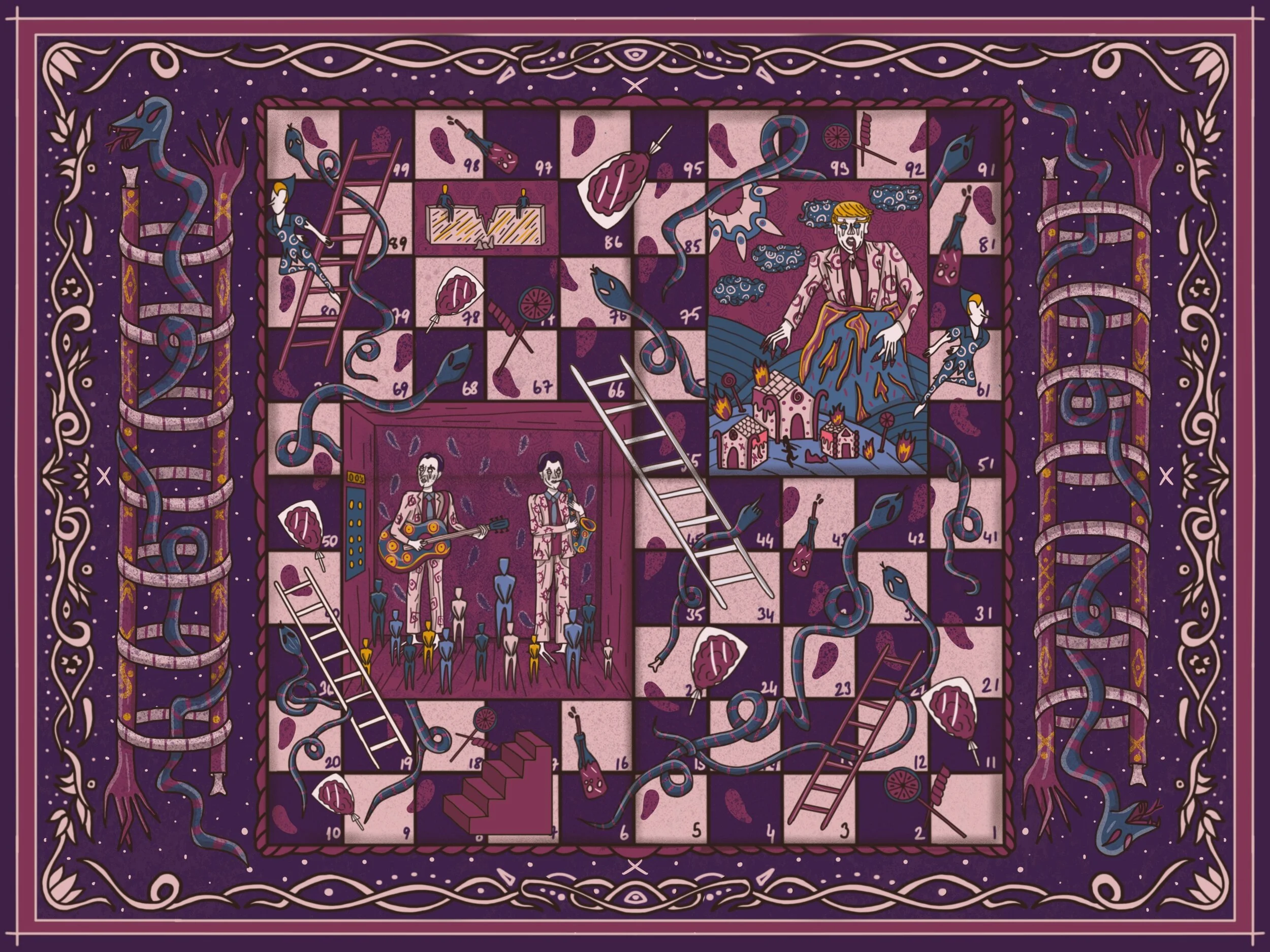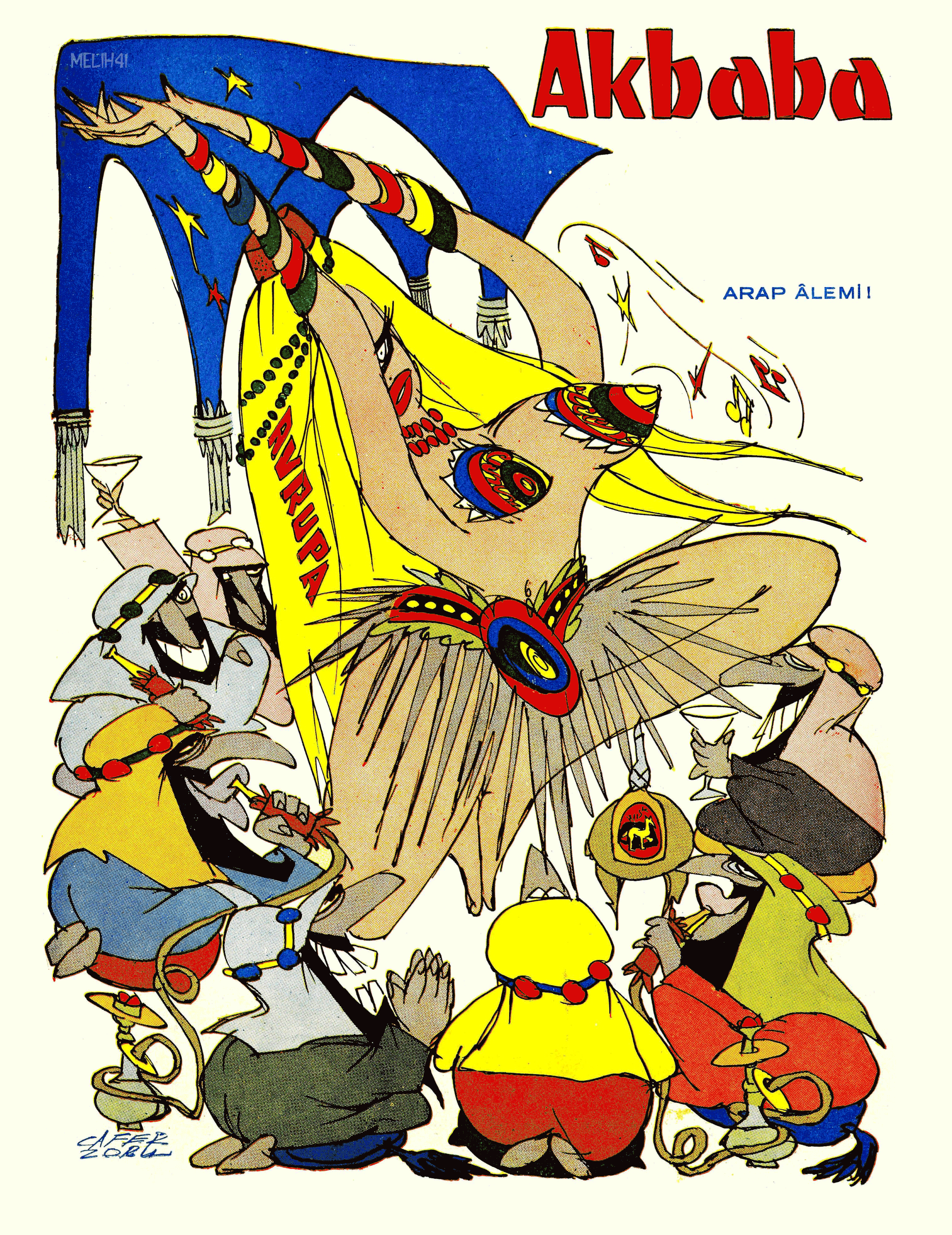Written with hindsight, Wasif seems to long for times, when the three religions lived together. This nostalgia sounds less like a tribute to the Ottoman rule and more of a yearning for a unified Jerusalem.
Read MoreThis type of reckoning with the past is a familiar experience for millennials from peripheral countries. We grew up watching the same cartoons, nagging our parents to buy the same toys and observing the world around us shrink at the same pace. Most importantly, we all had a moment when we thought this new and exciting shared global culture would make us all equal. When it didn't, we ended up experiencing the same sense of disappointment. All the cultural capital we acquired to fit in just made us look more suspicious. Whitey gawped at our ability to speak his language as if we were an entirely different species that miraculously learned to communicate through speech.
Read MoreThat photo says it all. Peter Handke on genocide safari in Srebrenica, mere months after the unspeakable crime. The great white European poet is front and centre, blocking the view of the Cyrillic town sign he presumably can’t read. In the background, we see some people, a car, an industrial plant, houses and hills (and the watermark of the Austrian National Library).
Read MoreOpen source archives are important because they are the memory of revolution and counter-revolution. They allow future generations to recollect fragments of resistance so they can stand up tall against regime propagandists and snooty Western intellectuals. These tenacious memories might just be what it takes to prevent the world from sinking into fatalistic notions of futility.
Read MoreThe depiction of constant movement and decamping, drove artists to come up with nascent tools under shifting and tense conditions. With a clear tendency to overcome that rigorous relationship (identity, self, roots) towards a freer and more direct interaction with the artwork, immersing a new sense, realizing aesthetic and sensational details. Finally, processing them on the canvas or into sculpture.
Read MoreA recent article on the Independent talks about the “changing face of tourism” in Turkey and how it supposedly “burnt a vital bridge between East and West.” In the article, Şebnem Arsu writes about the recent hike of Arab tourists; basically freaking out because some Arab shops have opened instead of Turkish ones and because European tourists have become less visible.
Read MoreTo write, to remember, because one feels a duty to do so can be exhausting, and there's nothing wrong with recognizing that the occupied, the exiled and those in-between can also fail. But even in failure, a way out is possible.
Read MoreThese views are like the intellectual manifestation of those inflatable things with flailing arms outside car dealerships. They’re ugly and they don’t make sense. We need to finally dispense with the unconditional celebration of Sovietism. 2017 is over. It’s now 102 years since the Bolshevik revolution, and 102nd anniversaries don’t mean shit.
Read More“Cities are unpredictable’’ says writer Teju Cole in his book Open City; “Once you give up insisting on stereotypes, you can really start to see’’. Seeing beyond one’s sight is often difficult especially in project-streets like İstiklal which are designed to hide the unwanted with either a secular Western facade or AKP’s money-drawing-shopping-star-project-district. In both cases, the real makers of the city are sacrificed in the name of formal, structural change.
Read MoreAs for my identity in Turkey well, for the Moros I am a Filipino, for the Filipinos I’m an American, and for the Americans, I finally get to be a fucking American. At least the Turks were consistent in labelling me a yabancı.
Read MoreThis is a reflection of how society is already polarised in terms of morality. This polarisation exists in ideas of taste and status but most importantly in the tendency of privileged circles to guard “their” scene against newcomers. It can be argued that this is contemporary Turkey in a nutshell. The ruling class who had the upper hand in setting cultural norms is now faced with the risk of losing things it took for granted.
Read MoreMorrissey's career has thus far gone unharmed and his views have not been collected. He has an overwhelmingly white fanbase, yet the alternative scene is not adverse to social justice and calling people out. I see a lot of activists in various political realms fighting great fights while failing to confront (or at least distance themselves from) The Problem of Morrissey.
Read More











